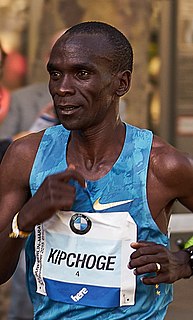A Quote by Robert Harris
Writers and journalists tend to be simplistic about politics when, like all other areas of life, it's more complicated.
Related Quotes
..few writers like other writers' works. The only time they like them is when they are dead or if they have been for a long time. Writers only like to sniff their own turds. I am one of those. I don't even like to talk to writers, look at them or worse, listen to them. And the worst is to drink with them, they slobber all over themselves, really look piteous, look like they are searching for the wing of the mother. I'd rather think about death than about other writers. Far more pleasant.
I have observed that male writers tend to get asked what they think and women what they feel," she says. "In my experience, and that of a lot of other women writers, all of the questions coming at them from interviewers tend to be about how lucky they are to be where they are – about luck and identity and how the idea struck them. The interviews much more seldom engage with the woman as a serious thinker, a philosopher, as a person with preoccupations that are going to sustain them for their lifetime.
What outrages me as a representative of journalists is that there's not more outrage about the number, and the brutality, and the cavalier nature of the U.S. military toward the killing of journalists in Iraq....They target and kill journalists ... uh, from other countries, particularly Arab countries like Al -, like Arab news services like Al-Jazeera, for example. They actually target them and blow up their studios with impunity.
Journalists in newspapers and in many magazines are not permitted to be subjective and tell their readers what they think. Journalists have got to follow a very strict formulaic line, and here we come, these non-fiction writers, these former journalists who are using all the techniques that journalists are pretty much not allowed to use.
I think that all journalists, specifically print journalists, have a responsibility to educate the public. When you handle a culture's intellectual property, like journalists do, you have a responsibility not to tear it down, but to raise it up. The depiction of rap and of hip-hop culture in the media is one that needs more of a responsible approach from journalists. We need more 30-year-old journalists. We need more journalists who have children, who have families and wives or husbands, those kinds of journalists. And then you'll get a different depiction of hip-hop and rap music.
A newspaper, as I'm sure you know, is a collection of supposedly true stories written down by writers who either saw them happen or talked to people who did. These writers are called journalists, and like telephone operators, butchers, ballerinas, and people who clean up after horses, journalists can sometimes make mistakes.
Compared with other Americans, journalists are more likely to live in upscale neighborhoods, have maids, own Mercedes and trade stocks, and less likely to go to church, do volunteer work or put down roots in a community. Journalists are over-represented in ZIP code areas where residents are twice as likely as other Americans to rent foreign movies, drink Chablis, own an espresso maker and read magazines such as Architectural Digest and Food & Wine.
I used to see a lot of cocaine. There were journalists who used cocaine and didn't write about it and I didn't write about it. I would never do drugs, so I would always get the same response from people: "Smart kid, more for me." Whether it was a joke or sincere or both, but I was just happy not to be in there partying with the band like some of these other journalists.





































